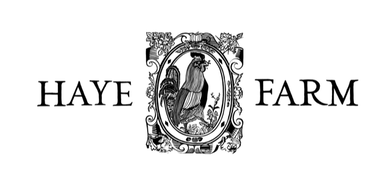COWS
We have a small mixed herd of pastured native and international breeds – Ruby Red Devons, Aberdeen Angus, Shorthorns and Speckle Parks. They spend most of the year outdoors grazing and come in for a short period in deep winter where they eat hay and silage, which we cut from our meadows and fields in late summer. Cows did not evolve to eat large amounts of grain, so we rarely feed them cereals as this would have a negative effect on their digestive system by affecting the levels of beneficial fatty acids in their meat.
We graze the cows in our fields so that the pastures have long rest periods before the herd returns. This allows time for ground-nesting birds and small mammals to make use of the habitat and to breed and, most importantly of all, it allows for nutrients to be cycled through the soil.
This is the vital role that cows play, and we couldn’t imagine our farm without them. Without cattle eating the grass and returning it to the land and fertilising it in the form of manure, we wouldn’t be able to maintain the quality of our pastures and meadows or their biodiversity.
Everything that the cows don't eat, they flatten and this too is reincorporated into the ground by worms and insects, contributing to the soil's health. Healthy soil stores more carbon and supports more microorganisms and mycelial networks which in turn produce stronger, more nutritious plants and, ultimately, happier, healthier animals.
The result for us of course is delicious, beautifully marbled meat, which we hang for three to four weeks for maximum flavour and tenderness.
